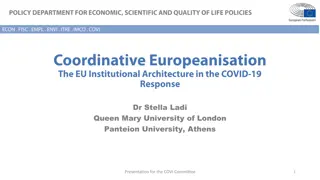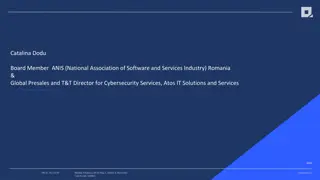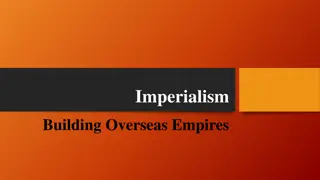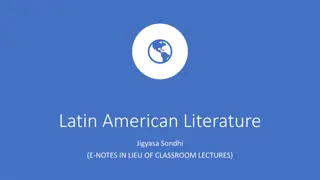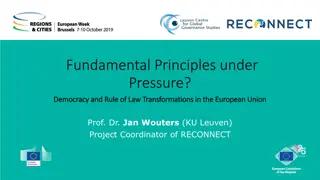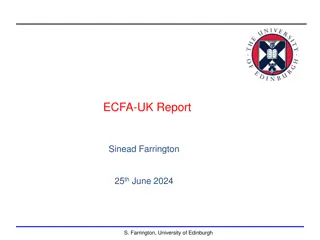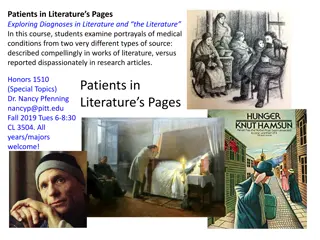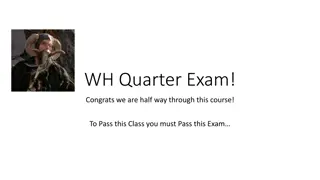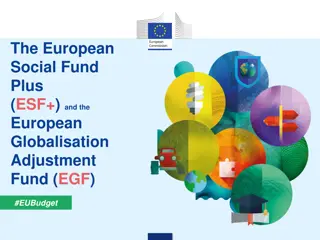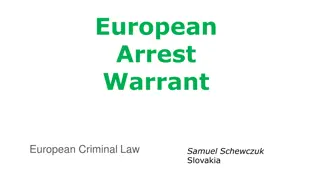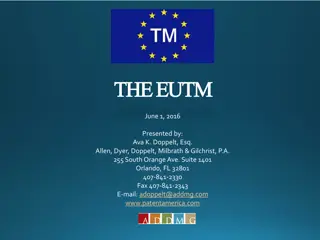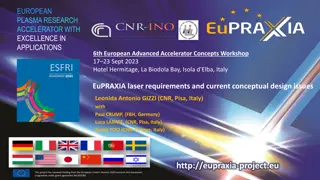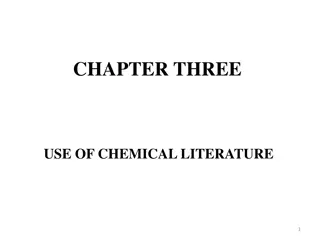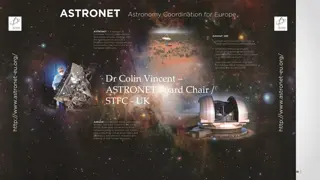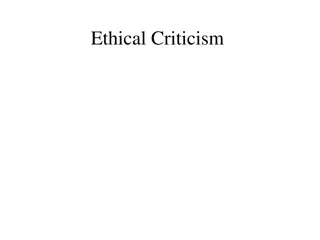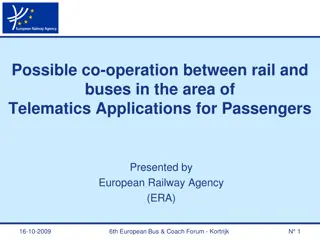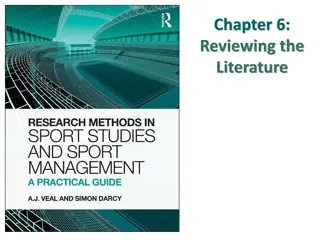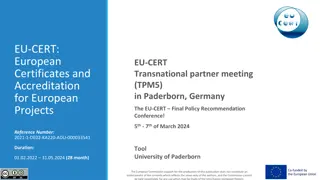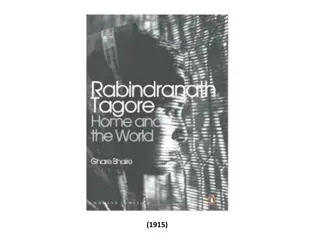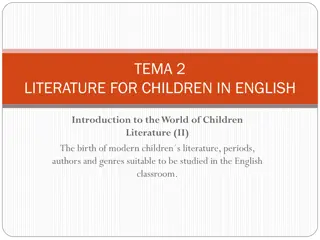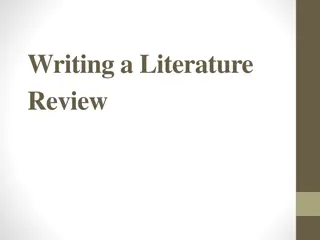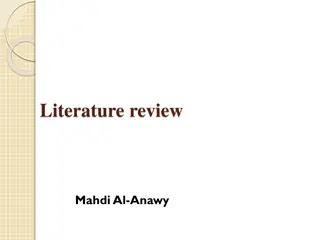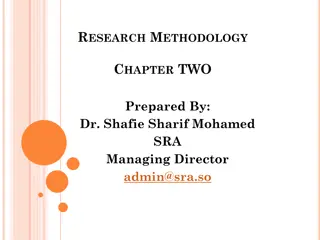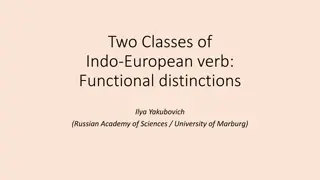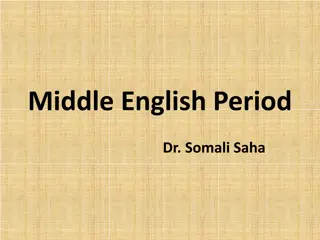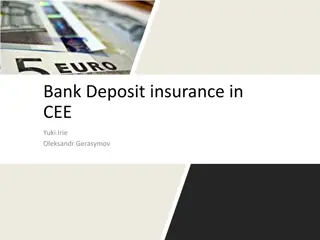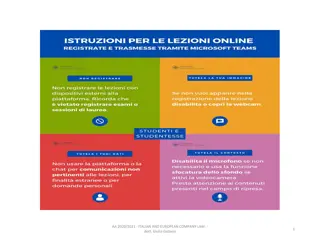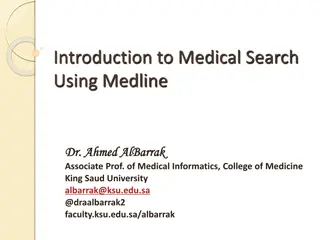Exploring the European Union and its Opportunities for Young People
The European Union (EU) is a political and economic union of 27 member states supporting lasting peace, human rights, freedom, and the free movement of people, goods, services, and capital. For young people, the EU offers job opportunities, youth events, travel and study opportunities, and initiativ
1 views • 18 slides
Evolution of European Literature: Greece, Rome, and Beyond
European literature traces its origins to the ancient works of Greece and Rome, with masterpieces like The Iliad, The Odyssey, and the Old Testament shaping its early development. The Classical Period saw a flourishing of drama, poetry, and philosophy in both Greek and Roman civilizations. This rich
4 views • 37 slides
European Institutional Response to COVID-19: Coordinative Europeanisation and Policy Recommendations
Dr. Stella Ladi from Queen Mary University of London and Panteion University, Athens, presented on the Coordinative Europeanisation during poly-crisis and the EU's institutional response to COVID-19. The presentation highlighted the recovery and resilience facility, the Schengen Area, and the import
0 views • 9 slides
Advancing Digital Transformation Through European Digital Identity Wallet Initiative
Facilitating digital transformation through the European Digital Identity Wallet initiative is crucial for enhancing trust, privacy, and security in online interactions. By prioritizing user-friendly solutions, data control, security measures, and inclusive implementation, the initiative aims to pro
1 views • 6 slides
Effective Strategies for Literature Searches and Re-Use of Scholarly Literature
Conducting literature searches involves surveying existing publications and information on a specific topic. Different search strategies, from simple searches to systematic queries and snowballing, are utilized based on research needs. Learning objectives include building search strategies, using ad
3 views • 19 slides
European Imperialism in the Late 19th Century
European nations in the late 1800s pursued imperialism to expand their empires for economic, political, and social reasons. Motives included economic interests, political and military ambitions, and the ideology of Social Darwinism. The Industrial Revolution fueled the need for resources and markets
1 views • 14 slides
Introduction to Isixhosa Language and Literature - Exploring Characters and Themes
This content provides an overview of Isixhosa as a first additional language (FAL) and delves into key aspects of literature such as character development and themes. It discusses the importance of characters in storytelling, emphasizing the significance of round and flat characters. The article als
3 views • 28 slides
Exploring Latin American Literature through History and Magic Realism
Latin American Literature encompasses a rich tapestry of national literatures from South and Central America, Mexico, Cuba, Puerto Rico, and parts of the West Indies. With roots in European traditions and indigenous cultures, this literary landscape is intricately tied to the continent's history and
0 views • 16 slides
Comprehensive Literature Review Guidelines for Your Dissertation
Discover expert guidelines for conducting a thorough literature review in your dissertation. Explore topics such as literature search strategies, theoretical frameworks, review of the literature, synthesis, and analysis, with actionable tips provided throughout.
0 views • 11 slides
Exploring the Significance of Persian Language and Literature in Indian History
Persian language and literature hold a crucial place in Indian history, serving as a prime source for understanding the medieval period. Scholars in India have dedicated their lives to preserving and promoting Persian history, language, and literature. The rich cultural heritage of India, dating bac
0 views • 9 slides
Democracy and Rule of Law Transformations in the European Union
Democracy and the rule of law in the European Union are facing challenges such as backsliding and low voter turnout. This article discusses tools the EU can use to address these crises, ways to strengthen the link between the European Parliament and its citizens, factors affecting voter turnout in E
0 views • 10 slides
Mastering the Literature Review Process
Understanding the significance of literature review, this guide emphasizes the essential steps involved in conducting a successful literature review - from planning and research problem identification to critical analysis and contribution to existing literature. It explains the importance of develop
0 views • 16 slides
Effective Strategies for Conducting Business Research Literature Review
This literature review provides insights into conducting business research effectively, covering topics such as how to search, read, and write literature reviews, along with the goals and types of literature. It emphasizes the importance of generating research ideas, demonstrating knowledge, and int
1 views • 13 slides
Overview of ECFA-UK: European Committee for Future Accelerators and its Activities
ECFA-UK, the European Committee for Future Accelerators, consists of members from prestigious institutions in the UK like Oxford, Edinburgh, Bristol, RAL, Glasgow, Cambridge, and UCL. The committee's main objective is to assess and ensure the well-being of the particle physics field in Europe and en
1 views • 11 slides
Exploring Diagnoses in Literature and the Literature
This course delves into portrayals of medical conditions in literature versus research articles. It explores the intersection of science and literature, analyzing works like "Black Swan Green" and "The Reason I Jump" to understand how they depict conditions like stuttering and autism. Through studen
1 views • 28 slides
Evolving Perspectives on Literature and Translation
Explore the intertwined relationship between national literature, comparative literature, and world literature, delving into the evolution of translation studies. Reflect on the shift from national literary histories to world histories of literature, highlighting the significance of world literature
3 views • 54 slides
Exploring Early American Civilizations and European Impact
Discover the Columbian Exchange, Early American Civilizations like Aztec, Inca, and Maya, Inca civilization characteristics, European Exploration impact on Native Americans, and motives for European Expansionism. Learn about technologies aiding European exploration and the economic concept of mercan
0 views • 26 slides
The European Social Fund Plus (ESF+) and European Globalisation Adjustment Fund (EGF) in EU Budget
The European Social Fund Plus (ESF+) plays a crucial role in addressing evolving technology, productivity, and globalisation challenges by supporting education, training, employment, and social inclusion initiatives. With an allocation of 101.2 billion euros, ESF+ aims to promote a more social Europ
3 views • 8 slides
European Arrest Warrants and Legal Framework in European Criminal Law
Description of two cases involving European Arrest Warrants - one for theft in Hungary and the other for driving without a license in Romania. The cases raise preliminary questions about the execution of European Arrest Warrants and detention conditions in issuing Member States.
0 views • 20 slides
The Evolution of European Union Trademarks: A Journey Through History
Exploring the transformation of European Union Trademarks (EUTM) from their inception to the present day, this narrative delves into the political and economic foundations of the European Union. From the establishment of the European Economic Community in 1958 to the development of a single market a
0 views • 38 slides
European Plasma Research Accelerator with Excellence in Applications
The European Plasma Research Accelerator project, also known as EuPRAXIA, is a cutting-edge initiative that aims to develop a laser driver for advanced accelerator concepts. Led by a team of experts from various European countries, the project focuses on laser requirements, overall layout, thermal m
0 views • 33 slides
Institutional Framework and Antitrust Law in the EU
The European Union's institutional framework is defined by the Treaties of Lisbon, European Union, and Functioning of European Union. These treaties establish the EU's objectives, governance principles, and delineate competences. Additionally, EU antitrust law principles are based on the Treaties of
0 views • 16 slides
Understanding the Importance of Chemical Literature in Research
Reviewing chemical literature is essential in the research process to identify existing knowledge, develop hypotheses, plan methodologies, and discover unanswered questions. The vast and complex nature of chemical literature poses challenges in finding relevant information, especially with evolving
0 views • 22 slides
Comprehensive European Astronomy Development Planning by ASTRONET
ASTRONET, a group of European funding agencies and infrastructures, coordinates all aspects of European astronomy. Established in the early 2000s with EU funding, ASTRONET focuses on long-term planning for the development of European astronomy. It has created the European Science Vision and Infrastr
0 views • 7 slides
Exploring Ethical Criticism and Literature's Human Possibilities
Ethical criticism in literary studies revolves around the intersection of ethics, literature, and criticism. It tackles concerns about the relationship between value judgments, ethics, and aesthetics, emphasizing the importance of reconnecting criticism with moral principles. Literature offers a dee
0 views • 21 slides
European Railway Agency's Role in Promoting Cooperation between Rail and Buses in Telematics Applications
The European Railway Agency (ERA) plays a crucial role in enhancing cooperation between rail and buses through Telematics Applications. Established in 2004, ERA focuses on recommending legislation, ensuring interoperability, and enhancing safety in the European rail network. Recommendations made by
0 views • 17 slides
Understanding the Importance of Literature Review in Research
Exploring the roles of literature in research, this content emphasizes the significance of reviewing existing literature to gather ideas, compare methodologies, and integrate supportive information. It also highlights the types of reviews and essential questions to consider during the literature rev
0 views • 12 slides
EU-CERT: European Certificates and Accreditation for European Projects
The EU-CERT project involves European Certificates and Accreditation for European Projects, with upcoming events like the Transnational Partner Meeting (TPM5) in Paderborn, Germany, and the Final Policy Recommendation Conference in March 2024. The accreditation website tool and related information a
0 views • 4 slides
The Status of Literature in Secondary Schools of the O.E.C.S. - Research Findings by Dr. Anthony Felicien
Research by Dr. Anthony Felicien examines the status of literature in secondary schools of the O.E.C.S., focusing on the decline of interest in literature among students, influenced by historical curriculum changes and parental attitudes. The study highlights the importance of studying literature fo
0 views • 35 slides
Rabindranath Tagore: A Literary Pioneer and Social Critic
Rabindranath Tagore, a prominent figure in Indian literature and culture, was the first non-European to win the Nobel Prize in Literature in 1913. He bridged the gap between Indian and Western cultures through his works, particularly evident in "The Home and the World." Tagore's involvement in the S
0 views • 17 slides
Evolution of Children's Literature in English: From Alice to Modern Times
Explore the birth of modern children's literature starting with the publication of "Alice's Adventures in Wonderland" in 1865 by Charles Dodgson (Lewis Carrol), marking a shift towards entertaining and engaging literature specifically for children. Prior to this, children mainly read folklore and ad
0 views • 35 slides
Mastering the Art of Writing Literature Reviews
Understanding the essence of a literature review, its descriptive and analytical components, selecting key articles, and finding relevant sources are essential steps in crafting a comprehensive literature review. By integrating ideas from various sources and highlighting crucial findings, a literatu
0 views • 18 slides
Comprehensive Guide to Literature Review Process
A literature review is essential before conducting research to identify existing information, gaps in literature, major works, and relationships between studies and theories. Follow steps such as defining the topic, sourcing information, discussing findings, and drafting to write an effective litera
0 views • 8 slides
Effective Strategies for Conducting a Literature Review in Research Methodology
Understanding the importance of literature review in research methodology, this chapter discusses the objectives, aims, and guidelines for writing a comprehensive literature review. It emphasizes the significance of identifying gaps in existing knowledge, structuring the review, and organizing infor
0 views • 33 slides
GCSE English Language and Literature Overview
GCSE English Language and Literature subjects are led by Mrs. A. Baker and Mr. Doodson. English Language is examined by OCR, while English Literature is examined by Edexcel. Both subjects have two examination papers worth 100% of the grade. English Language papers focus on reading and writing skills
0 views • 14 slides
Functional and Lexical Distribution of Indo-European Verbs
Investigating the functional and lexical distribution of Indo-European verb classes, this research delves into the mi- and xa-conjugations in Proto-Indo-European, new discoveries in the preterit of the xa-conjugation, paradigms in Hittite, perfect and middle endings in Late Indo-European, and the ch
0 views • 18 slides
Influence of the Norman Conquest on Middle English Literature
The Norman Conquest greatly impacted Middle English literature, shaping its nature and character. This influence brought about contact with European literature, a shift away from heroic themes, incorporation of sunny nature aspects, use of rhymed verse forms, existence of various literary dialects,
0 views • 6 slides
European Deposit Insurance Scheme (EDIS) - Towards a Safer Banking Industry in Europe
The European Commission initiated the European Deposit Insurance Scheme (EDIS) to strengthen confidence in the banking industry in Europe, solidifying the European monetary union. EDIS will be phased in from 2017 to 2024, providing more stability for European depositors and addressing potential pitf
0 views • 10 slides
Italian and European Company Law: Key Insights for 2020/2021
Delve into the intricacies of Italian and European company law for the academic year 2020/2021 with Dott. Giulia Gabassi. Explore topics such as European Economic Interest Grouping (EEIG), European legislation, Court of Justice regulations, directives, and uniform models. Understand the importance o
0 views • 88 slides
Effective Medical Literature Search Techniques by Dr. Ahmed AlBarrak
Dr. Ahmed AlBarrak, an Associate Prof. of Medical Informatics at King Saud University, provides valuable insights on medical literature search using resources like Medline. The content covers objectives of literature search, methods to find relevant literature, advantages of electronic journals, and
0 views • 39 slides


